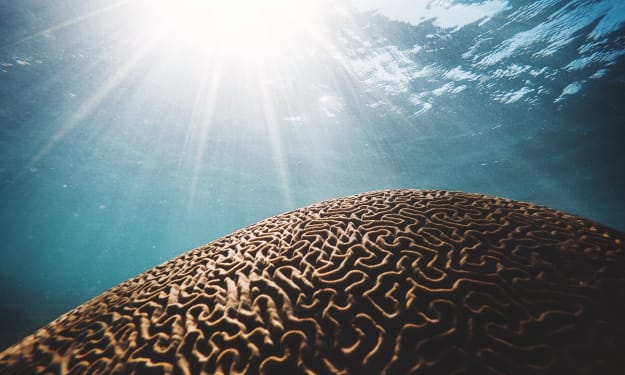How Can Rest Be a Threat?
Recognising Neural Behaviour

After living in a super-heightened state of fight/flight/freeze for over four decades, I had to accept and acknowledge that resting was perceived as an internal threat to my brain and was as sure to activate my Sympathetic Nervous System as any mortal danger could. Theoretically, when we perceive (even unconsciously) that we are in danger, our sympathetic nervous system is activated and we fight, flee, or freeze, depending on our perceived and unconscious chances of survival. It happens automatically and the pathway to our logic, rational thinking brain is disrupted so we can act instinctively without thought. We also cannot feel emotions in that moment so that we are not overwhelmed with terror and unable to act (unless that is the reaction that will inevitably save our lives). It's a brilliant survival mechanism and, after the perceived danger has passed, our Parasympathetic Nervous System is then supposed to activate and bring us "back to earth," grounding us and putting us into a "rest and digest" state so that any and all cellular injury or upset can be reset, recalibrated, repaired, or replaced, depending on the body's needs. The brain can't tell the difference between reality and imagination so internal stressors are perceived as mortal dangers, this means that meditation can be perceived by one brain to be restorative and calming while to another brain it may be stressful and even horrifying.
My first attempts at relaxation were a real nightmare and I had no idea why; I simply found relaxing to be completely impossible for a long time. I began learning about neuroscience and in particular, the effects of trauma on the brain and I became aware too of my body and how it feels. Over time I saw (and felt) for myself that coffee and sweeteners also activate the sympathetic nervous system, and the body perceives these as just another threat to its survival if it has been hyper-activated a lot or not had the state of complete rest it needs. It really stunned me to recognise that my brain saw relaxing as a threat.
I grew up in traumatic circumstances, and, put simply, my sympathetic nervous system was activated for over 35 years with almost no rest. I experienced abuse and trauma on multiple levels and almost died through accidents and one-off events like accidental electrocution, drowning while swimming, MVAs, etc. I did not know at the time that my brain stayed on high alert the entire time. I eventually collapsed into clinical depression and extreme anxiety after years of panic attacks and relative isolation. Although I worked (hard), I was as reclusive as being a mother of two would allow and I drove myself like a drill-sergeant at all times. When I would occasionally collapse exhausted, I would beat up on myself for being lazy and get moving again. I drank every day to get numb and became reliant on antidepressants to balance me physiologically. Although my behaviour was in some way learned, I believe now that it was also necessary. My brain could not function at a more relaxed pace back then and cluster headaches were what gave me my first clues.
I lived in terror until I left home at 15 and within a month barely survived a motor vehicle fatality. I lost my best friend and blamed myself for her death for years. Within weeks of that smash, I experienced my first cluster headache and felt terrified I had a brain tumour that the doctors must have missed. In 1985 there was not the technology we have now and because I was very emotional in my fear, my headaches were explored but not investigated. I was medicated and that usually made the pain worse, especially if I took sedatives. About 12 years later I was going through the motions with yet another doctor, trying to cure myself of this nightmare of six months of excruciating headaches every year when I heard myself say, "It's almost as if they are brought on by relaxing." Although I thought it slightly possible, I deferred to the doctor thinking he had the knowledge and that I did not. Years later I wondered again, "Could it be from relaxing, and why, how?" Neuroscience brought me the answer and that's what today's blog is about.
I have not had cluster headaches for over 12 months now, and although I have had pain free years before, I'm feeling very positive. From recognising the nervous system connection, I have made huge, healthy changes to my life and the biggest change has been to love myself and listen to myself, especially my body. I now eat an almost fully plant-based diet, exercise for one hour 3x per week, consume no caffeine or other stimulants or drugs including no alcohol, drink more water and herbals, meditate, sing, move, pray, and feel my feelings while releasing the energy of them naturally. My brain is still engaging the sympathetic nervous system enough to keep my mind busy while I meditate but "via positiva" meditation is helping with that, and Vedic chanting. Prayers and Vedic chants have proven positive effects on the brain and nervous system, as do many things. I'm retraining my entire system and supporting it in practicing relaxation without judgment so it gets plenty of repetitious experience of resting. After years of insomnia, I now sleep like a baby every single night and it's wonderful. This year I've even started dreaming or more accurately, remembering my dreams. Pranayama and other breathing exercises are further helping me to ground more fully into my being, and "grounding" is the ultimate relaxation technique. Trying to be "grounded" or "earthed" is what the brain reacts to in the first place and needs the most, so I'm in a great place now and my body is really healing on so many levels. It is my hope that people around the globe will soon understand the way the brain interprets life itself as a threat and learn how to support people in practicing "rest and digest" states of inaction without judgment. It's such a blessing.
About the Creator
Gabriella Grace
My main passion is parenting my Inner Child in a nurturing, loving way. Supporting others as they learn to love and accept themselves through self-parenting has been the priceless gift that has come out of that and is now my life's purpose.






Comments
There are no comments for this story
Be the first to respond and start the conversation.